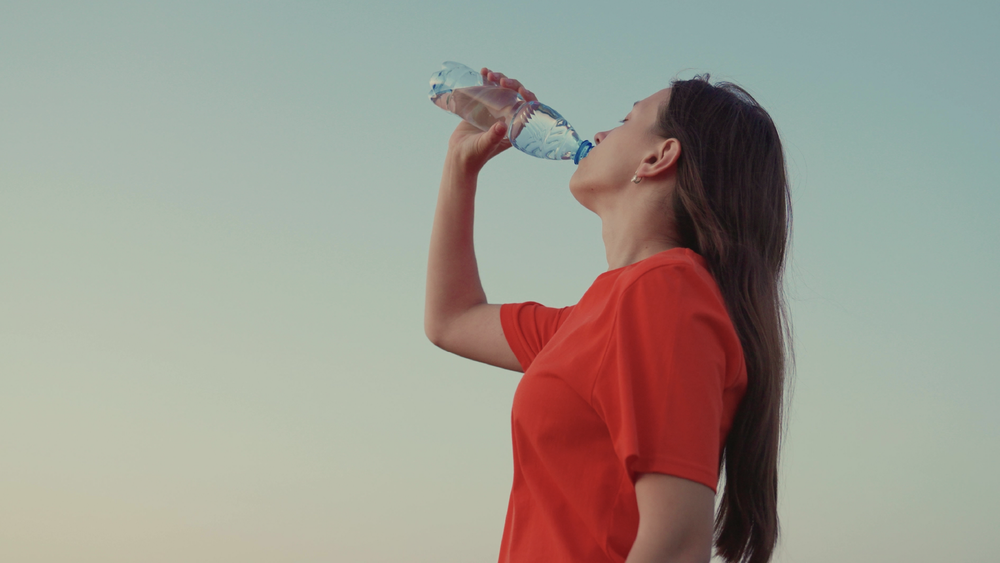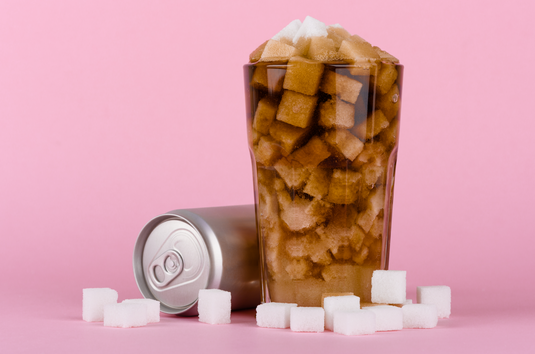Mythes sur l'hydratation saine : 3 mythes et faits courants

Vous avez soif ? C'est signe que vous êtes déjà déshydraté… du moins, c'est ce que tout le monde dit.
Il existe d'innombrables mythes sur l'hydratation, que nous acceptons comme des faits. Mais sont-ils vraiment vrais ? Voici trois mythes majeurs sur l'hydratation et les faits à connaître.
1. Mythe de l'hydratation : si vous avez soif, vous êtes déjà déshydraté
Un mythe courant sur l’hydratation est le suivant : si vous avez soif, vous êtes déjà déshydraté.
Bien que la sensation de soif soit un signe de déshydratation, il s'agit d'une vision trop simpliste du problème. En réalité, la sensation de soif peut être influencée par de nombreux facteurs, au-delà du niveau d'hydratation de votre corps.
La soif est contrôlée par un système sensoriel complexe dans le corps, similaire à la vue, à l'ouïe et au toucher. 1 Si la sensation de soif est un bon indicateur que vous devez boire un verre d'eau, les recherches montrent que les perceptions de soif, notamment la sécheresse buccale et la sensation de vide gastrique, peuvent survenir même lorsque vous êtes complètement hydraté. 2 Les récepteurs de la soif dans la bouche sont également influencés par le froid, ce qui peut être l'une des raisons pour lesquelles vous vous sentez plus rassasié après avoir bu un verre d'eau froide ou un soda lorsque vous avez vraiment soif. 3
La sensation de soif peut également être causée par diverses maladies chroniques. Par exemple, les personnes diabétiques peuvent ressentir de la soif et une sécheresse buccale , quel que soit leur niveau d'hydratation. 4,5 Des recherches montrent que certains médicaments peuvent également accentuer la sensation de soif. 6
En réalité, avoir soif peut indiquer que vous avez besoin de boire, mais cela ne signifie pas nécessairement que vous êtes déjà déshydraté. La réalité est bien plus complexe que ce que le mythe suggère.
2. Mythe de l'hydratation : le café et le thé vous déshydratent
Il est communément admis que le café et le thé n'hydratent pas l'organisme en raison de leur teneur en caféine. Vous avez probablement entendu dire que le café est un diurétique, c'est-à-dire qu'il provoque des mictions plus fréquentes, et qu'il déshydrate donc l'organisme au lieu de l'hydrater.
En réalité, l'effet diurétique de la caféine a été largement surestimé. Une étude publiée dans le Journal of the International Society of Sports Nutrition a révélé qu'une consommation modérée de caféine n'avait pas d'effet diurétique sur l'organisme. 7 La caféine n'a d'effet diurétique que si elle est consommée à des doses excessives et peu pratiques, qu'un buveur régulier de café ou de thé a très peu de chances d'atteindre. 7
Selon l'étude, les doses de caféine habituellement présentes dans les portions standard de café, de thé et de boissons gazeuses contenant de la caféine n'ont aucun effet diurétique. Vous pouvez donc boire du café et du thé noir sans crainte de déshydratation.
3. Mythe de l'hydratation : vous devez boire 6 à 8 verres de liquide par jour pour rester hydraté
La plupart des recommandations indiquent que vous devriez boire environ 6 à 8 verres d'eau par jour pour rester hydraté. 8 Bien que ce soit une bonne règle empirique, elle ne dit pas tout en matière d'hydratation.
En réalité, votre apport hydrique optimal peut varier en fonction d’un large éventail de facteurs. 9,10 Cela peut inclure :
- Votre génétique
- Votre âge
- Votre poids
- Votre niveau d'exercice
- Votre taux de transpiration (combien vous transpirez)
- Votre environnement (où vous vivez)
Par exemple, si vous vivez dans un climat chaud et sec, que vous faites régulièrement de l’exercice et que vous transpirez beaucoup, vous aurez probablement besoin de boire plus de liquide pour rester hydraté par rapport à quelqu’un qui ne fait pas d’exercice du tout.
Pour commencer, essayez de boire 35 ml d’eau pour chaque kilogramme que vous pesez. 11 Par exemple :
- Si vous pesez 72 kg (159 lb), essayez de boire environ 2,5 l d'eau par jour
- Si vous pesez 85 kg (188 lb), essayez de boire environ 3 l d'eau par jour
- Si vous pesez 100 kg (220 lb), essayez de boire environ 3,5 l d'eau par jour.
La vérité est que si vous voulez rester hydraté, vous devrez adapter la quantité d’eau et de liquides que vous buvez chaque jour en fonction de votre mode de vie, de votre environnement et de votre génétique.
Vous avez soif ? Essayez une façon plus savoureuse de vous hydrater.
Si vous souhaitez vous hydrater et bénéficier de bienfaits pour votre santé, Enhanced Electrolytes+ est spécialement formulé pour vous aider à vous ressourcer, à recharger vos batteries et à persévérer. Enchaînez vos entraînements, faites le plein d'électrolytes et favorisez une récupération musculaire rapide : repoussez vos limites et soyez au top de votre forme à chaque étape !
Chaque boule de nos mélanges de limonade fraise-kiwi et framboise regorge d'électrolytes et de puissants antioxydants. Enhanced Electrolytes+ contient également de la poudre de betterave fermentée, du Melorun® (extrait de melon), de la vitamine D3 et de l'extrait de feuille de goyave (standardisé à 4 % de zinc). Ensemble, cette formule contribue au maintien d'un équilibre électrolytique normal, au bon fonctionnement musculaire et à la formation des tissus, au soutien du système immunitaire et constitue une source d'antioxydants.
Maintenant, qui a soif ?
Date de modification : 14 février 2025
Références
-
Zimmerman, CA. Les origines de la soif. Science . 2020 ; 370(6512) : 45-46. doi : 10.1126/science.abe1479
-
Armstrong LE, Giersch GEW, Dunn L, Fiol A, Muñoz CX, Lee EC. Effets sur la soif et la consommation d'eau pendant la restriction hydrique et la réhydratation. Nutriments . 2020 ; 12(9) : 2554. doi : 10.3390/nu12092554
-
Gungor S, Tosun B, Candir G, Ozen N. Effets des sprays froids sur la soif, la fréquence des soins bucco-dentaires et la douleur des patients en unité de soins intensifs de chirurgie générale. Sci Rep . 2024;14(1):9997. doi:10.1038/s41598-024-58199-0
-
Soif. NHS Inform. Mis à jour le 7 janvier 2025. Consulté le 19 février 2025. https://www.nhsinform.scot/illnesses-and-conditions/nutritional/thirst/
-
López-Pintor RM, Casañas E, González-Serrano J et al. Xérostomie, hyposalivation et flux salivaire chez les patients diabétiques. J Diabète Res . 2016;2016 :4372852. est ce que je:10.1155/2016/4372852
-
Eng SH, Jaarsma T, Lupón J, et al. Soif et facteurs associés à une soif fréquente chez les patients souffrant d'insuffisance cardiaque en Espagne. Heart Lung . 2021;50(1):86-91. doi:10.1016/j.hrtlng.2020.08.002
-
Antonio J, Newmire DE, Stout JR, et al. Questions fréquentes et idées reçues sur la supplémentation en caféine : que révèlent réellement les données scientifiques ? J Int Soc Sports Nutr . 2024 ; 21(1) : 2323919. doi : 10.1080/15502783.2024.2323919
-
Eau, boissons et hydratation. Service national de santé britannique. Mis à jour le 17 mai 2023. Consulté le 19 février 2025. https://www.nhs.uk/live-well/eat-well/food-guidelines-and-food-labels/water-drinks-nutrition/
-
Armstrong LE, Johnson EC. Apport hydrique, équilibre hydrique et besoins quotidiens en eau, pourtant si difficiles à cerner. Nutriments . 2018;10(12):1928. doi:10.3390/nu10121928
-
Pourquoi il est important de boire de l'eau et de rester hydraté. Bien manger, c'est bien soigner. Publié le 21 juillet 2022. Consulté le 19 février 2025. https://health.ucdavis.edu/blog/good-food/why-its-important-for-you-to-drink-water-and-stay-hydrated/2022/07
-
Balaghi S, Faramarzi E, Mahdavi R, Ghaemmaghami J. Apports hydriques et habitudes de consommation de boissons chez les étudiants universitaires. Health Promot Perspective . 2011;1(1):54-61. doi:10.5681/hpp.2011.005

















































